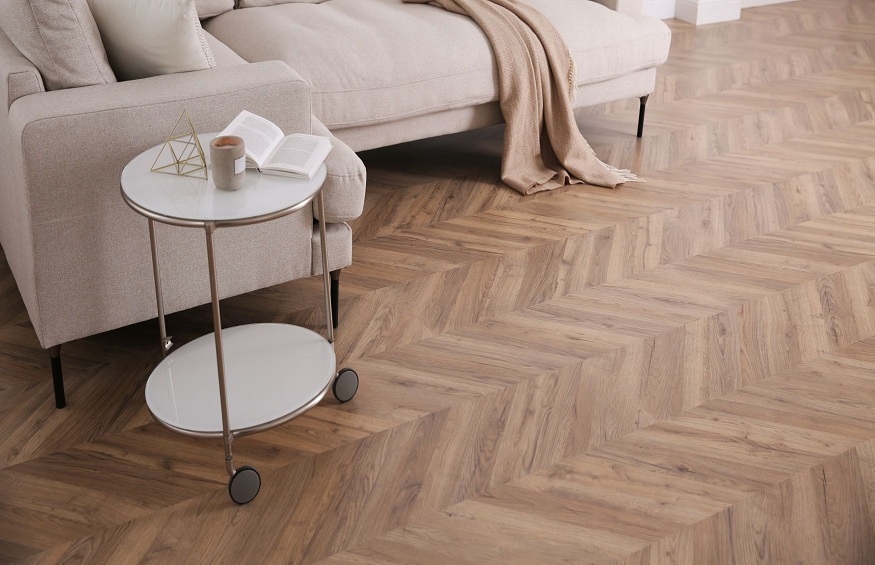To Vinyl or Not to Vinyl: A Comprehensive Guide to Staircase Flooring
As more homeowners seek cost-effective, durable, and stylish interior design solutions for their stair design, vinyl flooring is steadily emerging as a frontrunner. However, despite the growing popularity of vinyl, it’s essential to understand that every flooring design material comes with its unique set of strengths and weaknesses.

In this blog post, we delve into the world of vinyl flooring for stairs, carefully examining its pros and cons. Whether you’re planning a DIY home renovation or working with a professional decorator, this guide will provide valuable insights to help you navigate your flooring options.
Let’s step right into it!
Pros of Vinyl Flooring on Stairs
Affordable
In a world where home improvement costs can quickly skyrocket, vinyl flooring offers a breath of fresh air. It’s significantly cheaper than many other flooring options, but this doesn’t mean it skimps on quality or aesthetics. This affordability makes it an ideal choice for homeowners who want to upgrade their staircase on a budget, without compromising on the end result.
Easy to install
The simplicity of installing vinyl flooring is one of its major selling points. Unlike some other flooring materials that require professional installation, vinyl can be a DIY project. With basic tools and a bit of patience, you can transform your stairs over a weekend. This not only saves money on installation costs, but also gives you the satisfaction of a job well done.
Available in many attractive designs
Vinyl flooring is available in an extensive range of designs, textures, and colors. Whether you prefer a modern minimalist look, a rustic charm, or a classic elegance, there’s a vinyl design to match. This variety allows you to customize your stairs to seamlessly blend with the rest of your interior design, creating a cohesive and pleasing aesthetic.
Durable
When it comes to durability, vinyl flooring stands tall. It’s resistant to everyday wear and tear, stains, and scratches, making it a practical choice for high-traffic areas like stairs. With proper care, vinyl flooring design can retain its look and feel for many years, making your investment worthwhile.
Easy to clean
Life gets messy, but cleaning your vinyl stair flooring doesn’t have to be. Vinyl requires minimal maintenance, all it needs is a simple sweep to remove dust and debris and an occasional mop to keep it looking clean and shiny. This ease of maintenance saves time and effort, making vinyl an even more appealing choice.
Comfortable to walk on
Beyond aesthetics and durability, comfort matters too. Vinyl flooring, with its relatively softer surface, provides a comfortable underfoot feel. It’s less hard on your feet as you walk up and down the stairs, adding a touch of comfort to your daily routine.
Cons of Vinyl Flooring on Stairs
Requires a smooth surface
To achieve a flawless finish with vinyl flooring, your staircase needs to be completely smooth and clean. Any bumps, cracks, or imperfections on the floor can show through the vinyl, leading to an unsightly appearance and possible damage over time. This means you might need to invest time and effort in preparing your stairs before installation.
It can be hard to remove
Vinyl flooring is known for its stickiness, which while great for installation, can pose challenges when it’s time for removal. If you decide to switch up your flooring in the future, be prepared for some intense labor. The adhesive used for vinyl can make it tough to remove without causing damage to the underlying surface.
It can be damaged by the sun
Prolonged exposure to direct sunlight can be detrimental to vinyl flooring. Over time, the colors can fade and the material can warp, diminishing its aesthetic appeal. If your staircase is in an area that gets a lot of sunlight, you may need to consider this factor.
It can be dented
Although vinyl is generally durable and scratch-resistant, it isn’t immune to dents from heavy objects. Dropping something heavy or moving furniture with sharp edges can leave an impression on the surface. Therefore, extra caution is needed to maintain the pristine look of your vinyl stair flooring.
Like any interior design decision, choosing the right flooring for your stairs should be based on a careful evaluation of both the pros and cons, as well as your specific needs, preferences, and circumstances.
Vinyl flooring for stairs presents a compelling option with its affordability, ease of installation, and other benefits. However, it’s not without its downsides, such as the need for a smooth surface for installation and the risk of dents from heavy objects.
If you value cost-effectiveness, design variety, and durability, vinyl could be an excellent choice for you. However, if your stair design gets a lot of sun or if you anticipate changing your flooring often, you might want to consider other options.
